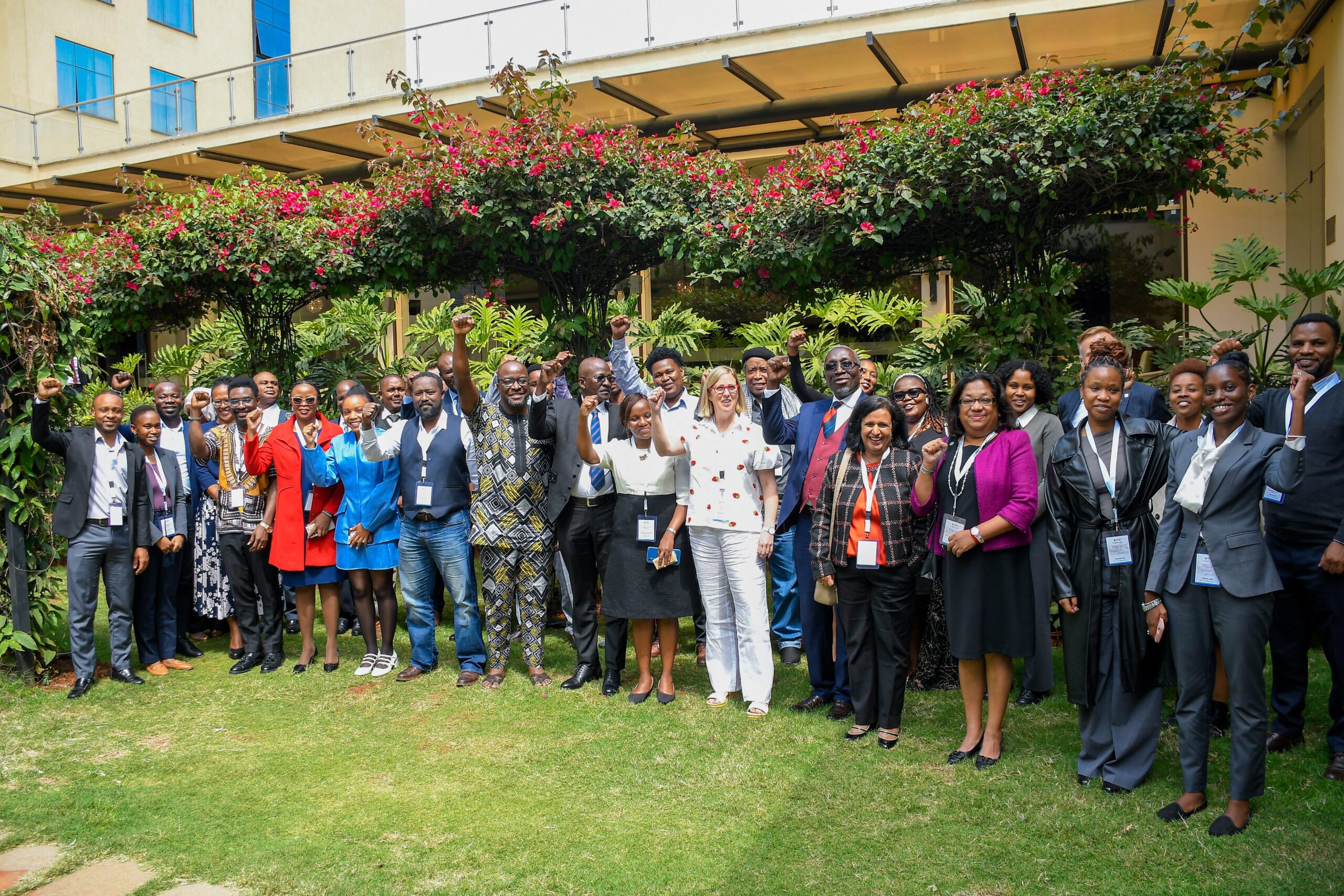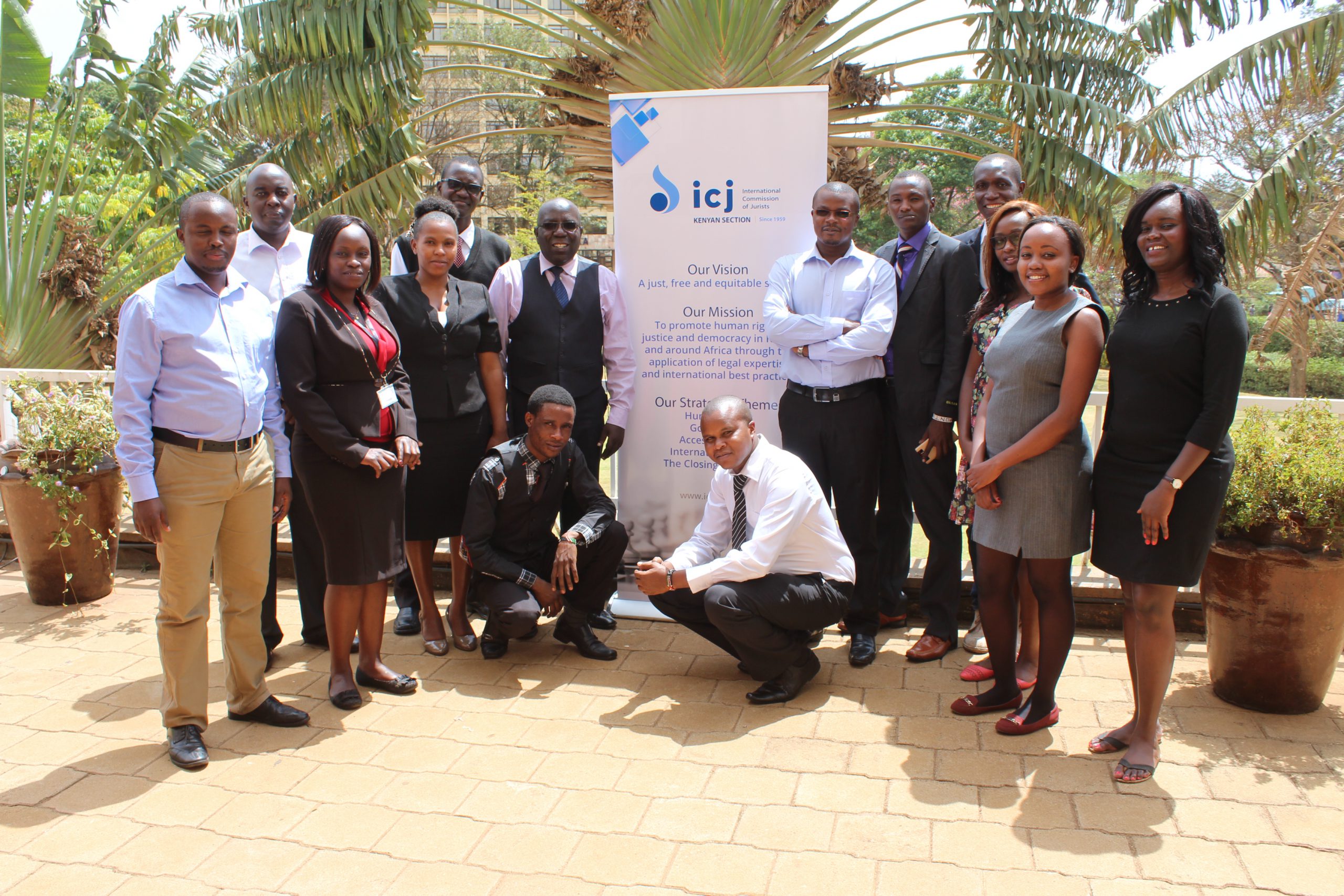ICJ-Kenya held a training on the recently developed case tracking system (referred to as HAKI) for Eldoret Law Courts clerks in Eldoret on 21st February 2017. The training targeted a select group of registry clerks from all court registries, the Deputy Registrar and judicial officers represented by the Chief Magistrate were trained as Trainer of Trainers (TOTs).
HAKI is an Information Communication Technology (ICT) tool developed to enhance access to justice to the public through increasing the efficiency and effectiveness of the services they receive at the court registries.
A needs assessment that was conducted at the inception of the project revealed that a vast majority of the public felt that the biggest let down in terms of access to justice occurred at the registry. Among the complaints noted were files getting lost or misfiled, corruption at the registry in order to access information held at the registry, difficulties in accessing information readily and on time including notices when a court is not sitting, etc.
The HAKI system allows the registry clerk to store information about a case file electronically. This information can be accessed and relayed to a client at the touch of a button without having to look for the physical file. It also increases integrity in transferring of files by tracking file movement at the point of transfer and returning of files.
More so, HAKI is designed to automatically generate reports such as the daily court returns and the cause list, which save on the time it would take court staff to manually generate these reports. Further, an SMS system is attached to HAKI which enables the system to automatically inform parties and their advocates of the change of court dates well in advance to save them time and other resources which would otherwise have been spent to go to court to find out the same.
Finally, the system has in place safeguards to ensure accountability in the use of the system including use of individual login and passwords, limiting users’ access to alter information already entered in the system, setting up administrators as supervisors over the information handled by the users, etc.
The TOTs are now expected to train their colleagues on how to use the system, even as the Programme follows up to monitor the use of the tool and its effectiveness in access to justice for the people of Eldoret and beyond.











